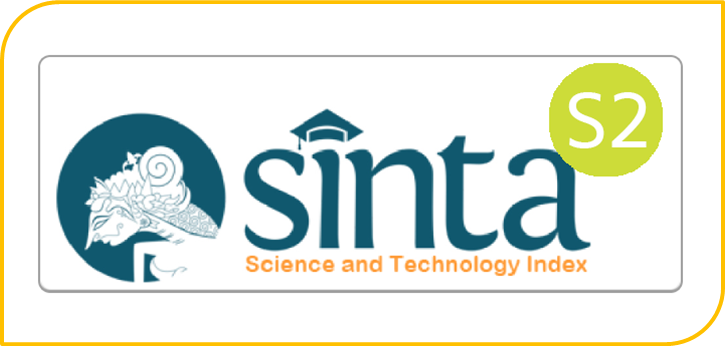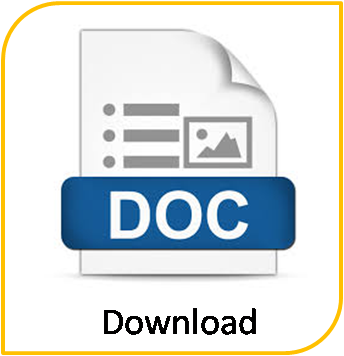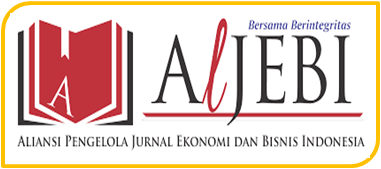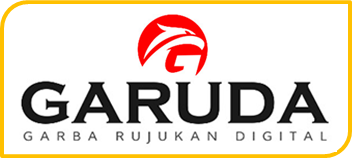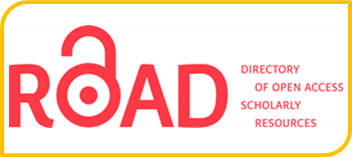THE JOURNEY OF ISLAMIC MICROFINANCE IN INDONESIA: A SOCIAL MOVEMENT'S THEORETICAL APPROACH
Abstract
Keywords
Full Text:
PDFReferences
Abouchatir, H. (2023). Islamic Microfinance Literature : A Bibliometric Analysis. Researches and Applications in Islamic Finance, 7(2), 150–169.
Adnan, M. A., & Ajija, S. R. (2015). The effectiveness of baitul maal wat tamwil in reducing poverty the case of indonesian islamic microfinance institution. Humanomics, 31(2), 160–182. https://doi.org/10.1108/H-03-2012-0003
Ahmed, H. (2002). Financing microenterprises: An Analytical study of Islamic microfinance institutions. Islamic Economic Studies, 9(2), 27–64.
Al-ani, O. A. (2013). Islamic micro-finance in Iraq (Challenges & opportunities). Journal of King Abdulaziz University, Islamic Economics, 26(2), 47–92. https://doi.org/10.4197/Islec.26-2.2
Antonio, M. S. (2008). Islamic microfinance initiatives to enhance small and mediumsized enterprises. In Expressing Islam: Religious Life and Politics in Indonesia (pp. 251–266). Institute of Southeast Asian Studies.
Antonio, M. S. (2011). Islamic microfinance initiatives to enhance small and medium enterprises in Indonesia: From Historical Overview to Contemporary Situation. Journal of Indonesian Islam, 5(2), 313. https://doi.org/10.15642/JIIS.2011.5.2.313-334
Anwar, M. K., Ridlwan, A. A., & Laili, W. N. R. (2023). The role of Baitul Maal wat tamwil in empowering MSMES in Indonesia: a study of Indonesian Islamic Microfinance Institutions. International Journal of Professional Business Review, 8(4). https://doi.org/10.26668/businessreview/2023.v8i4.913
Ayaz, M., Shah, H. S., Noor, A. U. M., Shaheen, S., & Yusuf, J. B. (2019). Islamic microfinancing by the banking sector of Pakistan: Problems and solutions. Journal of Islamic Thought and Civilization, 9(2), 20–43. https://doi.org/10.32350/jitc.92.02
Bank Indonesia. (2013). Outlook perbankan syariah 2014.
Beik, I. S., Buana, G. K., & Pickup, F. (2018). Unlocking the Potential of Zakat and Other Forms of Islamic Finance to Achieve the SDGs in Indonesia. United Nations Development Programme, 23.
Bewley, K., Graham, C., & Peng, S. (2018). The winding road to fair value accounting in China: a social movement analysis. Accounting, Auditing & Accountability Journal, 31(4), 1257–1285. https://doi.org/10.1108/AAAJ-06-2015-2089
Bin Mislan Cokro Hadisumarto, W., & Ghafar, A. (2010). Improving the effectiveness of Islamic micro-financing: Learning from BMT experience. Humanomics, 26(1), 65–75. https://doi.org/10.1108/08288661011025002
Choiruzzad, S. A. B. (2012). The Central Bank in the Development of Islamic Economy Project in Indonesia : Role, Motivations and Moderating Effect. The Ritsumeikan Journal of International Studies, 25(2), 437–460.
Choiruzzad, S. A. B. (2013). More Gain, More Pain: The Development of Indonesia's Islamic Economy Movement (1980s-2012). Indonesia, 95(April), 125–173. https://doi.org/10.5728/indonesia.95.0125
Choiruzzad, S. A. B., & Nugroho, B. E. (2013). Indonesia's Islamic economy project and the Islamic scholars. Procedia Environmental Sciences, 17, 957–966. https://doi.org/10.1016/j.proenv.2013.02.114
Davis, G. F., & Thompson, T. A. (1994). A Social Movemet Corporate Control. Administrative Science Quarterly, 39(1), 141–173.
Dusuki, A. W. (2008). Banking for the poor: the role of Islamic banking in microfinance initiatives. Humanomics, 24(1), 49–66. https://doi.org/10.1108/08288660810851469
Engwall, L., Pahlberg, C., & Persson, O. (2018). The development of IB as a scientific field. International Business Review, 27(5), 1080–1088. https://doi.org/10.1016/j.ibusrev.2018.03.009
Fianto, B. A., Gan, C., & Hu, B. (2019). Financing from Islamic microfinance institutions: evidence from Indonesia. Agricultural Finance Review, 79(5), 633–645. https://doi.org/10.1108/AFR-10-2018-0091
Fianto, B. A., Maulida, H., & Laila, N. (2019). Determining factors of non-performing financing in Islamic microfinance institutions. Heliyon, 5(8). https://doi.org/10.1016/j.heliyon.2019.e02301
Frickel, S., & Gross, N. (2005). A general theory of scientific/intellectual movements. American Sociological Review, 70(2), 204–232. https://doi.org/10.1177/000312240507000202
Greckhamer, T., & Cilesiz, S. (2020). The extension of strategic management discourse into public education administration: A critical analysis. Organization, 135050842095632. https://doi.org/10.1177/1350508420956323
Hambrick, D. C., & Chen, M. (2008). New Academic Fields as Admittance-Seeking Social Movements: The Case of Strategic Management. Academy of Management Review, 33(1), 32–54. https://doi.org/10.5465/amr.2008.27745027
Hamidah, S., Bakri, M., Budiono, A., & Winarno, B. (2017). the Analysis of Islamic Economy in the Constitution of Indonesia. Brawijaya Law Journal, 4(1), 59–76. https://doi.org/10.21776/ub.blj.2017.004.01.03
Handayani, W., Haniffa, R., & Hudaib, M. (2018). A Bourdieusian perspective in exploring the emergence and evolution of the field of Islamic microfinance in Indonesia. Journal of Islamic Accounting and Business Research, 9(4), 482–497. https://doi.org/10.1108/JIABR-10-2017-0142
Hossain, B. (2019). Islamic microfinance and rehabilitation model for the slum and floating population by waqf funds, the case of Bangladesh: A proposal for Muslim countries. Journal of King Abdulaziz University, Islamic Economics, 32(2), 139–160. https://doi.org/10.4197/Islec.32-2.11
Islam, R., & Ahmad, R. (2020). Applicability of Mudarabah and Musharakah as Islamic Micro-equity Finance to Underprivileged Women in Malaysia. European Journal of Development Research, 32(1), 176–197. https://doi.org/10.1057/s41287-019-00225-3
Ismail, R. (2001). Economic and Social Impact of Amanah Ikhtiar Malaysia (AIM) Scheme: A Case Study in Kedah and Terengganu. Humanomics, 17(1), 141–155. https://doi.org/10.1108/eb018866
Jenkins, J. C. (1983). Resource Mobilization Theory and the Study of Social Movements. Annual Review of Sociology, 9, 526–553.
Khan, J. A., & Nisar, S. (2004). Collateral (Al-Rahn) as Practiced by Muslim Funds of North India. Journal of King Abdulaziz University-Islamic Economics, 17(1), 17–34. https://doi.org/10.4197/islec.17-1.2
Komite Nasional Ekonomi dan Keuangan Syariah. (2019, April). Sharing Platform Keuangan Mikro Syariah Berbasis Baitul Maal Wat Tamwil (BMT). Knks.Go.Id.
Komite Nasional Keuangan Syariah. (2019). Strategi Pengembangan Keuangan Mikro Syariah Di Indonesia (Rekomendasi Kebijakan). KNKS. https://knks.go.id/storage/upload/1579667043-Strategi Pengembangan Keuangan Mikro Syariah Di Indonesia (Rekomendasi Kebijakan) - KNKS.pdf
Mariyanti, T., & Mahfudz, A. A. (2016). Dynamic circular causation model in poverty alleviation: Empirical evidence from Indonesia. Humanomics, 32(3), 275–299. https://doi.org/10.1108/H-02-2016-0016
Masyita, D., & Ahmed, H. (2013). Why Is Growth of Islamic Microfinance Lower Than Its Conventional Counterparts in Indonesia ? Islamic Economic Studies, 21(1), 35–62. https://doi.org/10.12816/0000239
Masyitoh, N. D. (2014). Analisis Normatif Undang-Undang No. 1 Tahun 2013 Tentang Lembaga Keuangan Mikro (LKM) atas Status Badan Hukum dan Pengawasan Baitul Maal wat tamwil (BMT). Economica, V(2), 17–36.
Mawardi, I., Widiastuti, T., Sukmaningrum, P. S., & Al Mustofa, M. U. (2019). Optimum financing portfolio of islamic microfinance institutions: Indonesia case. Utopia y Praxis Latinoamericana, 24(Extra5), 268–274.
Mccarthy, J. D., Zald, M. N., & Mccarthy, J. D. (2009). Resource Mobilization and Social Movements : A Partial Theory'. 82(6), 1212–1241.
Merton, R. K. (1973). Social Conflict Over Styles of Sociological Work. In R. K. Merton (Ed.), The Sociology of Science: The Theoritical and Emprical Investigations (pp. 47–69). University of Chicago Press.
Mia, M. A. (2023). The transformation of conventional microfinance into Islamic microfinance in Bangladesh: proposed Shariah-based model(s). Qualitative Research in Financial Markets. https://doi.org/10.1108/QRFM-06-2022-0104
Mohamed, T. S., & Elgammal, M. M. (2023). Credit risk in Islamic microfinance institutions: The role of women, groups, and rural borrowers. Emerging Markets Review, 54. https://doi.org/10.1016/j.ememar.2022.100994
Nasim, A., Mediawati, E., Ningsih, C., Heryana, T., & Nurlaela, F. (2020). Application of islamic accounting principles in shirkahmudarabah and musharakah to realize justice. International Journal of Psychosocial Rehabilitation, 24(2), 1816–1825. https://doi.org/10.37200/IJPR/V24I2/PR200483
Obaidullah, M., & Khan, T. (2008). Islamic Microfinance Development: Challenges and Initiatives. In IRTI-IDB (Issue 2). IRTI-IDB. https://doi.org/10.2139/ssrn.1506073
Peng, S. (Stella), Graham, C., & Bewley, K. (2013). Fair Value Accounting Reforms in China: Towards an Accounting Movement Theory. SSRN Electronic Journal. https://doi.org/10.2139/ssrn.2229475
Purwanto, P., Abdullah, I., Ghofur, A., Abdullah, S., & Elizabeth, M. Z. (2022). Adoption of Islamic microfinance in Indonesia an empirical investigation: an extension of the theory of planned behaviour. Cogent Business and Management, 9(1). https://doi.org/10.1080/23311975.2022.2087466
Rahim Abdul Rahman, A. (2010). Islamic microfinance: An ethical alternative to poverty alleviation. Humanomics, 26(4), 284–295. https://doi.org/10.1108/08288661011090884
Rashid, M. H. U., Uddin, M. J., & Mohd. Zobair, S. A. (2018). Islamic Microfinance and Sustainable Development Goals in Bangladesh. International Journal of Islamic Business & Management, 2(1), 67–80. https://doi.org/10.46281/ijibm.v2i1.53
Riwajanti, N. I. (2014). Exploring the Role of Islamic Microfinance Institution in Poverty Alleviation Through Microenterprises Development, A Case Study of Islamic Financial Cooperative (BMT) in Indonesia. Kyoto Bulletin of Islamic Area Studies, 7(March), 49–66. http://hdl.handle.net/2433/185836
Rokhman, W. (2013). The effect of Islamic microfinance on poverty alleviation: Study in Indonesia. Economic Review: Journal of Economics and Business, 11(2), 21–30. https://www.econstor.eu/handle/10419/193826
Rokhman, Wahibur. (2014). Islamic Work Ethic As an Antecedent of Work Outcomes: a Study of Islamic Microfinance in Central Java, Indonesia. QIJIS (Qudus International Journal of Islamic Studies), 2(1), 82–97.
Sadeq, A. M. (2002). Waqf, perpetual charity and poverty alleviation. International Journal of Social Economics, 29(1/2), 135–151. https://doi.org/10.1108/03068290210413038
Sakai, M. (2010). Growing together in partnership: Women's views of the business practices of an Islamic Savings and Credit Cooperative (Baitul Maal wat Tamwil) in Central Java, Indonesia. Women's Studies International Forum, 33(4), 412–421. https://doi.org/10.1016/j.wsif.2010.02.015
Sakai, M. (2014). Establishing social justice through financial inclusivity: Islamic propagation by Islamic savings and credit cooperatives in Indonesia. TRaNS: Trans-Regional and -National Studies of Southeast Asia, 2(2), 201–222. https://doi.org/10.1017/trn.2014.4
Samad, M. A. (2014). Islamic micro finance: Tool for economic stability and social change. Humanomics, 30(3), 199–226. https://doi.org/10.1108/H-12-2013-0085
Sarker, M. N. I., Khatun, M. N., & Alam, G. M. (2019). Islamic banking and finance: potential approach for economic sustainability in China. Journal of Islamic Marketing, 11(6), 1725–1741. https://doi.org/10.1108/JIMA-04-2019-0076
Schrempf-Stirling, J., & Van Buren, H. J. (2020). Business and Human Rights Scholarship in Social Issues in Management: An Analytical Review. Business and Human Rights Journal, 5(1), 28–55. https://doi.org/10.1017/bhj.2019.23
Seibel, H D. (2008). Islamic microfinance in Indonesia: The challenge of institutional diversity, regulation, and supervision. Sojourn, 23(1), 86–103. https://doi.org/10.1355/SJ23-1D
Seibel, Hans Dieter, & Agung, W. D. (2005). Islamic Microfinance in Indonesia.
Servantie, V., Cabrol, M., Guieu, G., & Boissin, J.-P. (2016). Is international entrepreneurship a field ? A bibliometric analysis of the literature (1989 – 2015). Journal Internasional Entrepreneurship, 14, 168–212. https://doi.org/10.1007/s10843-015-0162-8
Setyowati, E., & Rahayu, S. T. (2020). The role of shariah micro financial institution in reducing poverty. Test Engineering and Management, 82(2–2), 2233–2241.
Shaik Mohammed, W., & Waheed, K. (2019). Interest-free microfinance in India: a case study of Bait-un-Nasr Urban Cooperative Credit Society. ISRA International Journal of Islamic Finance, 11(2), 322–337. https://doi.org/10.1108/IJIF-10-2018-0114
Smolo, E., & Ismail, A. G. (2011). A theory and contractual framework of Islamic micro-financial institutions operations. Journal of Financial Services Marketing, 15(4), 287–295. https://doi.org/10.1057/fsm.2010.24
Solikhah, Wiwoho, J., Pujiyono, & Taruno Muryanto, Y. (2020). Model of management baitul maal wat tamwil (Bmt) financial institutions based on sharia principles in poverty alleviation efforts. International Journal of Advanced Science and Technology, 29(4), 1681–1684.
Ülev, S., Savaşan, F., & Özdemir, M. (2023). Do Islamic microfinance institutions affect the socio-economic development of the beneficiaries? The evidence from Turkey. International Journal of Ethics and Systems, 39(2), 286–311. https://doi.org/10.1108/IJOES-09-2021-0179
Ulfi, I. (2018). Empowering Women through Islamic Microfinance: Experience of BMT Beringharjo. Jurnal Ekonomi Dan Bisnis Islam, 3(1), 89–101.
Ulfi, I., Mubarrok, U. S., Sawarjuwono, T., & Fianto, B. A. (2023). A Review on Islamic Microfinance Literature. Jurnal Manajemen Dan Kewirausahaan, 8(April), 88–101. http://dx.doi.org/10.32503/jmk.v8i2.3419
Wahyudi, I. (2014). Commitment and trust in achieving financial goals of strategic alliance: Case in Islamic microfinance. International Journal of Islamic and Middle Eastern Finance and Management, 7(4), 421–442. https://doi.org/10.1108/IMEFM-10-2013-0113
Wardiwiyono, S. (2012). Internal control system for Islamic micro financing: An exploratory study of Baitul Maal wat Tamwil in the City of Yogyakarta Indonesia. International Journal of Islamic and Middle Eastern Finance and Management, 5(4), 340–352. https://doi.org/10.1108/17538391211282836
Wasiaturrahma, Ajija, S. R., Sukmana, R., Sari, T. N., & Hudaifah, A. (2020). Breadth and depth outreach of Islamic cooperatives: do size, non-performing finance, and grant matter? Heliyon, 6(7), e04472. https://doi.org/10.1016/j.heliyon.2020.e04472
Wulandari, P, & Kassim, S. (2016). Issues and challenges in financing the poor: case of Baitul Maal Wa Tamwil in Indonesia. International Journal of Bank Marketing, 34(2), 216–234. https://doi.org/10.1108/IJBM-01-2015-0007
Wulandari, Permata. (2019). Enhancing the role of Baitul Maal in giving Qardhul Hassan financing to the poor at the bottom of the economic pyramid: Case study of Baitul Maal wa Tamwil in Indonesia. Journal of Islamic Accounting and Business Research, 10(3), 382–391. https://doi.org/10.1108/JIABR-01-2017-0005DOI: https://doi.org/10.18860/ed.v11i2.20599
Refbacks
- There are currently no refbacks.
Editorial Office:
Megawati Soekarnoputri Building
Faculty of Economics
E-mail: eldinar@uin-malang.ac.id
Universitas Islam Negeri Maulana Malik Ibrahim Malang
E-ISSN 2622-0083

El Dinar under a CC BY SA 4.0 International License.
Member of:
Indexed By:

